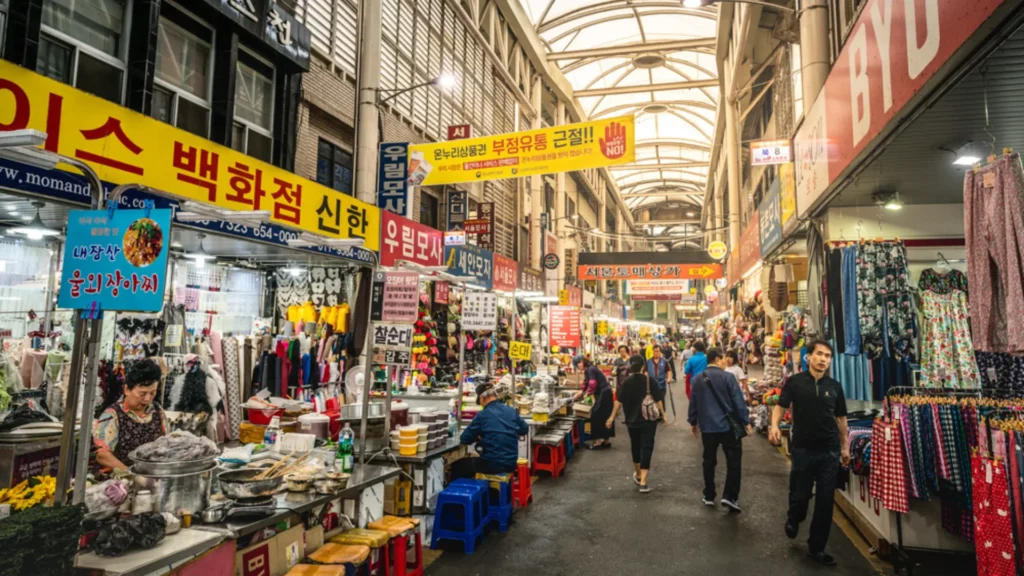Martial law unsettled the market and made South Korea’s economy face its biggest political crisis in decades.
South Korean President Yoon Seok Yeol promised to increase confidence in Korea’s stock market since it was known to be undervalued compared to other markets.
But as 2024 is ending, he briefly announced martial law, which unsettled the market and made Asia’s fourth-largest economy face its biggest political crisis in decades.
Geoffrey Cain, the author of Samsun Rising and managing director of Alembic Partners, stated that South Korea is seen as strong, mentioning that the country is an exception since China heavily overshadows Hong Kong and Taiwan.
However, the martial law rattled the markets, which shows that South Korea is not as secure as many market analysts believe.
Since the National Assembly voted for Yoon’s impeachment, it made the president’s political future very uncertain.
Yoon had dismissed demands for his resignation, and the People Power Party (PPP) leader announced that they would oppose the impeachment move but doubt its success.
PPP leader informed the reporters that he could not defend Yoon’s declaration of martial law but would seek to unfit his party against the motion.
Since the Democratic Party (DP) and other opposition groups have 192 seats in the 300-member National Assembly, the opposition needs at least eight conservative lawmakers to achieve the majority votes needed for impeachment.
The South Korean Constitutional Court can decide whether to dismiss Yoon from his office only if the proposal is successful.
On Wednesday, South Korea hit a two-year low against the US dollar before recovering much of the lost ground.
The market has not been affected much till now. Yeo Han-koo, a former South Korean trade minister, stated that the Korean government is working on a contingency plan but is unsure how quickly they can restore stability.
Analysts warn that political instability can continue for an extended period, but the current fallout is manageable. A prolonged standoff can be worse for South Korea’s financial market and overall economy.
Gareth Leather, a senior economist at Capital Economics, stated problems would arise if the president remains in power and does not step down and his party is against impeachment.
Thailand has experienced political instability since the 2006 coup, showing that ineffective leadership can affect economic progress.
While South Korea has some renowned corporate giants like Samsung and Hyundai, South Korean stocks have been historically undervalued compared to global companies.
Apple’s market capitalization is 14 times that of Samsung Electronics, the crown jewel of the Samsung group, even though its revenue is only a third higher than its Korean competitor.
After his commitment to stabilize the market, Yoon introduced reforms to enhance the stock market, like introducing an index focusing on companies that have increased capital efficiency and tax benefits for the companies to improve shareholder return.
Some received positive feedback from investors, but the initiatives had little effect on the market.
Even before Yoon declared martial law, KOSPI was down 14% from July. There was a weak performance in the stock market after the economy weakened, demand declined in China, and expectations of hefty tariffs under Trump.
Data from the central bank on Thursday shows that the gross domestic product grew only 0.1 percent during July-September after a 0.2% decline in the previous quarter.
The growth rate of 1.4% from last year was the weakest since the aftermath of the 2008 global financial crisis, excluding the COVID-19 pandemic.
South Korea is facing long-term challenges: competition from Taiwan in exports, geopolitical threats from China, and the industrial economy.
Experts hope that despite political instability and economic challenges, South Korea will overcome them through their strong economic foundations.
Right-wing populists are keeping Victor Orban as a model. But, for an example of democratic backsliding, South Korea will be seen as a model.
Soohyung Lee, a member of the Monetary Policy Board at the Bank of Korea, expressed that the political instability will not have a lasting effect on South Korea’s economy.
South Korea is ready to face any political challenges without any individual disrupting the system. History has shown that South Korea became stronger, with Lee pointing out the rapid recovery from the 1997 Asian financial crisis and the 2008 global financial crisis as examples.
Yeo, the former trade minister, remarked that many developed countries face economic challenges.
South Korea has an advantage in advanced technology and manufacturing but struggles with political and geopolitical tensions and corporate governance. The key lies in how Korea uses its advantages and addresses its disadvantages.
